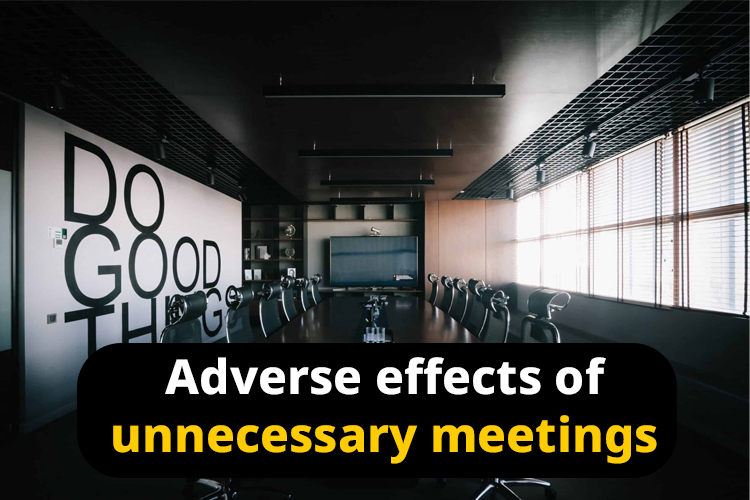Useless meetings waste time and $100 million a year for big companies
A survey, conducted over the summer by Steven Rotenberg, a professor of organizational science, psychology, and management at the University of North Carolina, asked 632 employees across 20 industries to study their weekly calendars and estimate the time

A survey, conducted over the summer by Steven Rotenberg, a professor of organizational science, psychology, and management at the University of North Carolina, asked 632 employees across 20 industries to study their weekly calendars and estimate the time they actually spent in meetings, what they got out of them and how they responded to invitations.
Employees spend about 18 hours a week on average in meetings, and they only decline 14% of invites even though they’d prefer to back out of 31% of them. Reluctantly going to noncritical meetings wastes about $25,000 per employee annually, and projects out to $101 million a year for any organization with more than 5,000 employees.
“Meetings do control us, and bad meetings have an enormous cost,” said Rogelberg, who has been researching meetings for two decades. “You get a meeting invite and say, ‘I don’t need to be there,’ yet you say yes. Many accept because it’s a workplace norm nobody wants to offend the meeting organizer by skipping out, or have co-workers think they’re not engaged. Others hate having to chase down updates on what happened. Most managers don’t talk to their staff about how and when to decline meetings, in part because they’re typically the ones leading them and like the sense of control they provide, Rogelberg said. The survey found women more concerned than men about declining meetings.
Betsy Peters, vice president of marketing and product strategy at Rivar, needed to get a better handle on Riva’s meetings when the pandemic hit and workers went remote, so she asked Rogelberg to speak to Riva’s 100 or so employees. Since then, they’ve gotten better at trimming down the invite list, and also shortened all meetings. “The fear of the 30-minute meeting is over.”
Rogelberg’s earlier research found that poorly managed meetings can hurt employee engagement and even boost their intention to quit, and the morass of meetings got worse during the pandemic due to the shift to remote work and videoconferencing. Based on thousands of users of its workplace software found that time spent in meetings has more than tripled since February 2020, and the number of weekly meetings has more than doubled.
Managers, who spend about 20% more time in meetings than the average employee, need to be more judicious in calling them and more upfront about letting people decline them, Rogelberg said. Inviting people to just part of a meeting also helps improve their efficacy, the survey found.







